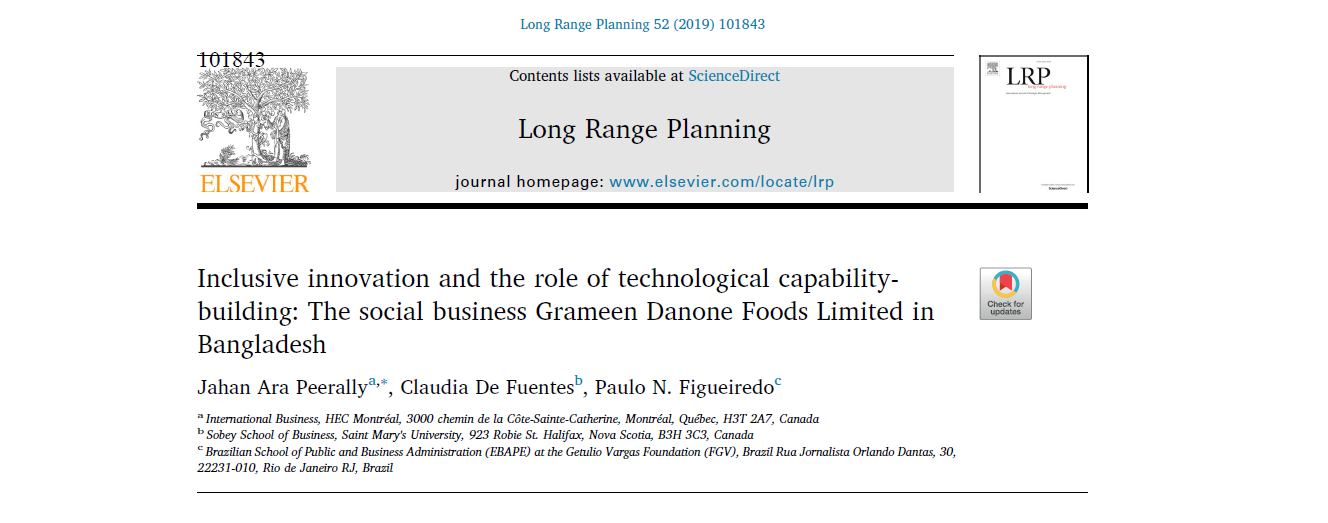
This article examines how a least developed country-based social business first creates operational capabilities (OCs) and then, over time, builds innovative capabilities (ICs) to fulfil a social need, be self-sustainable and achieve inclusive innovation. This relationship is examined in Bangladesh’s Grameen Danone Foods Limited (GDFL) by integrating the technological capability and inclusive innovation theoretical frameworks and by using data gathered through extensive fieldwork. Broadly, our findings show how GDFL built and accumulated basic and intermediate ICs to undertake innovative activities in all areas of operation. Specifically, our findings scrutinize the process in which a social business develops and organizes its resources to initially build OCs and engage in the creation of ICs through various learning mechanisms to deliver inclusive innovation. From this process, we also observe a set of unpredicted positive spillovers to the community, which expands the inclusiveness effect. The findings also suggest that having a social orientation, triggers the use of different resources from within and outside the firm to achieve inclusive innovation. We conclude by discussing the study’s implications for scholars, policymakers and managers of multinational’s social businesses. We also highlight future research areas, and crucially those related to key emerging conceptual limitations of inclusive innovation and development.
Peerally, J-A; De Fuentes, C; & Figueiredo, P.N. (2019). Inclusive innovation and the role of technological capability building: The social business Grameen Danone Foods Limited in Bangladesh. Long Range Planning, 52 (6) 101843 DOI: https://doi.org/10.1016/j.lrp.2018.04.005